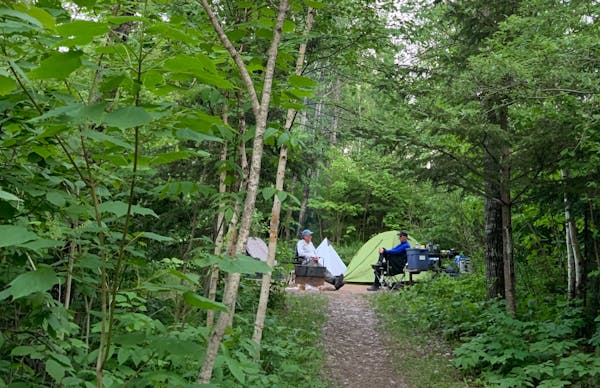A national watchdog group has urged U.S. Fish and Wildlife Director Martha Williams to take stronger action against the Minnesota Department of Natural Resources for allegedly logging public wildlife lands primarily for commercial timber production.
The complaint letter this week from Tim Whitehouse, executive director of Public Employees for Environmental Responsibility, criticized a timber-related agreement forged between the two agencies on Dec. 5. The agreement established "action items'' for a path forward from a couple of years of discord over an ongoing DNR program that intensified timber sales on federally funded, DNR-controlled state wildlife management areas.
A 2020 field report by the U.S. Fish and Wildlife Service (FWS) said the DNR's Fish and Wildlife Division seemed to have little oversight over the harvest program despite legal requirements for any type of forest management on wildlife lands to primarily benefit wildlife. The report validated complaints from a dissident group of 28 DNR wildlife managers.
Whitehouse said in his letter the action-item agreement does not meet standards for compliance with the federal grant program that raises money from hunters and anglers and returns it to states for land acquisition, habitat improvement and other wildlife purposes.
"If full compliance is not achieved, FWS should withhold any unallotted federal aid funds,'' the letter said.
FWS spokesman Tim Patronski said the federal agency is focused on the future "and working closely with the DNR.'' The five action items agreed to earlier this month are aimed at benefiting wildlife and meeting federal requirements.
DNR said FWS has not withheld funding from its current two-year, $26.4 million grant. But there's a mutual agreement that DNR will not seek reimbursement for forest habitat management under the grant until it fully understands and addresses grant conditions related to timber harvest in wildlife management areas.
"DNR continues to receive reimbursement for all other eligible habitat activities, which we anticipate will constitute approximately 95 percent of the work funded under this grant,'' DNR said.

Byron Buxton drives in five runs as Twins trounce A's

Meet the 2025 Star Tribune All-Minnesota high school softball team

Meet Randolph's Carter Raymond, the All-Minnesota Softball Player of the Year

Twins' Lewis searches for his way out of another hitting slump

